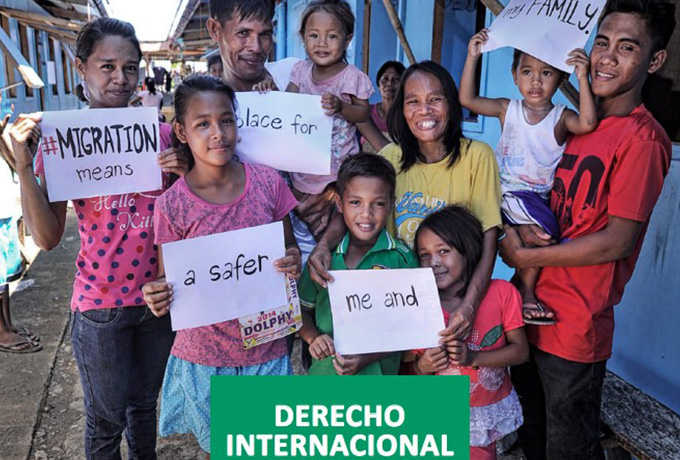Sustainable reintegration:
In the context of international return migration, reintegration can be considered sustainable when returnees have reached levels of economic self-sufficiency, social stability within their communities, and psychosocial well-being that allow them to cope with possible (re)migration drivers.
Right to return:
An element of the right to freedom of movement entailing that everyone shall be free to return to one’s own country
Return migration:
In the context of international migration, the movement of persons returning to their country of origin after having moved away from their place of habitual residence and crossed an international border.
Return:
In a general sense, the act or process of going back or being taken back to the point of departure. This could be within the territorial boundaries of a country, as in the case of returning internally displaced persons and demobilized combatants; or between a country of destination or transit and a country of origin, as in the case of migrant workers, refugees or asylum seekers.
Remittances:
Personal monetary transfers, cross border or within the same country, made by migrants to individuals or communities with whom the migrant has links.
Reintegration:
A process which enables individuals to re-establish the economic, social and psychosocial relationships needed to maintain life, livelihood and dignity and inclusion in civic life.
Regularization:
Any process or programme by which the authorities of a State allow non-nationals in an irregular situation to stay lawfully in the country, by granting them a regular status.
Refugee:
According to the 1951 Convention relating to the Status of Refugees, a person who, owing to a well-founded fear of persecution for reasons of race, religion, nationality, membership of a particular social group or political opinion, is outside the country of his/her nationality and is unable or, owing to such fear, is unwilling to avail himself/herself of the protection of that country; or who, not having a nationality and being outside the country of his/her former habitual residence as a result of such events, is unable or, owing to such fear, is unwilling to return to it. Moreover, the Cartagena Declaration on Refugees extends the category of refugees as defined in the Convention relating to the Status of Refugees to persons whose life, safety or freedom have been threatened by generalized violence, external aggression, internal conflicts, massive violation of human rights or other circumstances seriously disturbing public order.
Assisted voluntary return and reintegration:
Administrative, logistical or financial support, including reintegration assistance, to migrants unable or unwilling to remain in the host country or country of transit and who decide to return to their country of origin.
Asylum seeker:
An individual who is seeking international protection. In countries with individualized procedures, an asylum seeker is someone whose claim has not yet been finally decided on by the country in which he or she has submitted it. Not every asylum seeker will ultimately be recognized as a refugee, but every recognized refugee is initially an asylum seeker.



